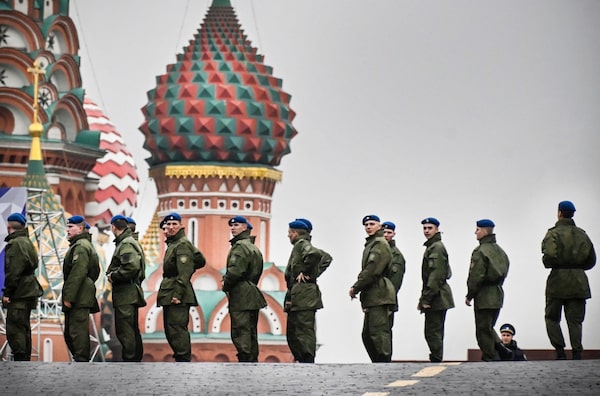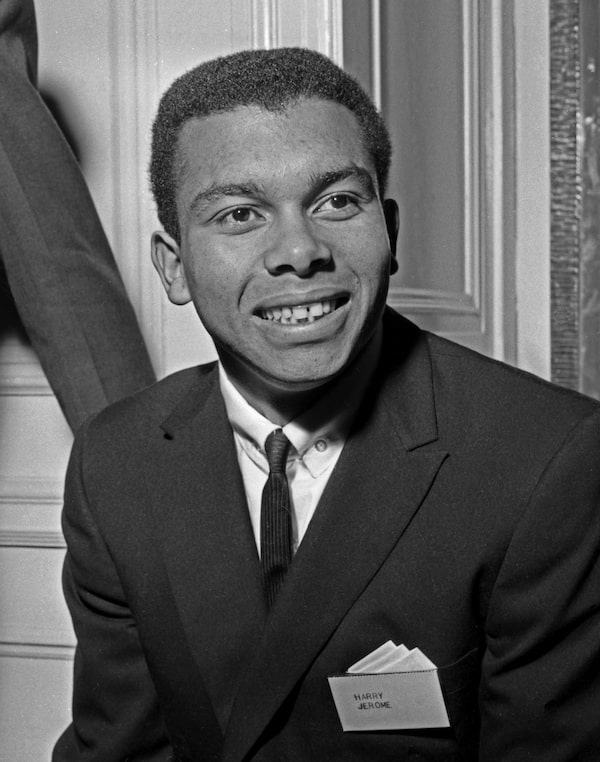Good morning,
Russian President Vladimir Putin was preparing to annex four occupied regions of Ukraine on Friday, following staged referendums in which, Moscow claims, Ukrainians in those areas voted to join Russia.
The referendums, which ended on Tuesday, were carried out under tightly controlled conditions, with armed men forcing residents to vote. Although the votes have been widely denounced as shams, they are a signal that Putin is not giving up on his war.
Hours before Putin was expected to speak, a missile attack on a convoy of cars in southern Ukraine killed a number of civilians. The convoy was carrying people and supplies into Russian-held territory in Ukraine’s southern Zaporizhzhia province.
Russian forces were on the verge of one of their worst defeats of the war on Friday. The pro-Russian leader of occupied areas in Ukraine’s Donetsk province acknowledged his forces had lost full control of Dobryshev and Yampil villages, leaving Moscow’s main garrison in northern Donetsk half-encircled in the city of Lyman.
Read more:
- Russia says Nord Stream leaks likely to be state-backed ‘terrorism’
- TikTok’s unlikely new star is a Ukrainian refugee in Saskatchewan

Russian soldiers stand on Red Square in central Moscow on Sept. 29, 2022, as the square is sealed prior to a ceremony of Moscow's annexation of four occupied Ukrainian regions.ALEXANDER NEMENOV/AFP/Getty Images
This is the daily Morning Update newsletter. If you’re reading this on the web, or it was forwarded to you from someone else, you can sign up for Morning Update and more than 20 other Globe newsletters on our newsletter signup page.
Torstar owners ‘deadlocked’ in feud over direction of company, including Toronto Star
NordStar Capital Inc. co-owner Paul Rivett is seeking a court order to wind up the company after a breakdown in his relationship with business partner Jordan Bitove, raising uncertainty about the control of Torstar Corp. and the Toronto Star newspaper.
Rivett detailed the significant rift in an application filed with the Ontario Superior Court of Justice on Sept. 1, alleging Bitove thwarted business plans they had agreed to, ignored proper corporate governance and attempted to sideline him. “There is complete deadlock between Rivett and Bitove,” the application states. “They can no longer work together.”
After Fiona’s wrath, Atlantic fishing communities contend with how to rebuild quickly and ward against future storms
Even as the coastal fishing communities across the Atlantic provinces struggle to assess the full scope of Fiona’s destruction, they’ve begun to turn their attention to rebuilding – and whether it’s possible to rebuild quickly but also thoughtfully, to bolster defences against future powerful storms.
All week, fishermen were left to reckon with the damage left in Fiona’s wake, and to the region’s industry, which exports more than $4.5-billion worth of seafood each year. But as officials plan for the future, they face two competing priorities: the need to rebuild fast as the fishing season approaches and the need to rethink infrastructure entirely in the face of climate change – a costlier, and potentially slower, approach.
Got a news tip that you’d like us to look into? E-mail us at tips@globeandmail.com Need to share documents securely? Reach out via SecureDrop
Also on our radar
For one residential-school survivor, making drums honours Kamloops’s lost children: Norman Retasket shares how he found meaning in making drums – and his own story of surviving the Kamloops Indian Residential School.
- Catholic bishops promise to make residential-school records more accessible
- Explainer: What to know about National Day for Truth and Reconciliation
- Hudson’s Bay to direct proceeds from the sale of its point blankets to Indigenous initiatives
Floods trap thousands in Florida: Rescue crews waded through flooded streets to save thousands of Floridians trapped after Hurricane Ian wrecked homes and businesses and knocked out power for millions.
Famed Zimbabwean novelist convicted after peaceful protest: Tsitsi Dangarembga, whose most recent novel was short-listed for the Booker Prize, has been convicted of “inciting public violence” for silently participating in a protest in Harare in 2020.
Canadian banks having second thoughts about Mark Carney’s green alliance: The banks’ qualms about the Glasgow Financial Alliance for Net Zero, or GFANZ, are surfacing as some of their U.S. counterparts consider quitting over fears they could face legal action stemming from antitrust concerns if they are required to divest from some high-emitting sectors in the push to decarbonize.
- Opinion: Alberta must address the looming risk of an unstable carbon market
Truss defends tax policies amid criticism: British Prime Minister Liz Truss insisted she won’t reverse course on the tax cuts announced last week despite plunging public support and widespread criticism, including from former Bank of England governor Mark Carney.
Morning markets
European stocks were a touch higher on Friday as government bond yields pulled back from recent peaks, but higher-than-expected inflation continued to weigh on markets. After a week of market turmoil in which recession fears sapped stocks and currency markets were rocked by dollar strength, Asian shares fell on Friday and were on track for their biggest monthly loss since the start of the pandemic in 2020. The Canadian dollar was trading at 73.08 US cents.
What everyone’s talking about
On Russia, the Baltics are having their ‘I told you so’ moment
“Westerners, the Balts have long argued, have fallen into a trap on Russia. We’ve come to believe that if only we had been nice to Russia, and if only we had tried to integrate its economy into ours, then the Russian regime would surely have become softer and nicer. Now, we have become too soft and too forgiving of Russia, fooled by precisely the superficial and cynical shows of liberalism and reform that the Balts had warned us about. In their view, Russia was, is and always will be a wolf in sheep’s clothing.” - Habib Massoud
Stop telling women what to wear – in Iran, but also here at home
“If Ms. Massa or a teacher in Quebec wants to wear a hijab at work, if Ms. LaFlamme wants to go grey, if a Grade 11 student wants to wear a crop top – it is not our concern. It does not affect the lessons, the news, the world. But telling students, teachers, broadcasters – women, anyone – how to dress does. It colours the world.” - Marsha Lederman
Today’s editorial cartoon

Brian Gable/The Globe and Mail
Living better
Five things to stream this weekend: Jon Hamm plays Fletch, and Michael K. Williams’s final performance
Welcome to the Great Content Overload Era, where there are so many new films and series being released on streaming platforms every day that it can feel hard to keep up. To help you navigate what’s on offer, The Globe’s Barry Hertz shares five best bets for weekend streaming.
Moment in time: Sept. 30, 1940
Olympic sprinter Harry Jerome is born

Harry Jerome excelled in many sports, but it was his blazing speed that made him one of the most outstanding sprinters of his generation.Harold Robinson/The Globe and Mail
In 1959, at just 18, high-school student Harry Jerome broke the Canadian 220-yard record set by Olympian Percy Williams in 1928. He would go on to share the world record in six sprint events between 1960 and 1966. Born in Prince Albert, Sask., on this day in 1940, Harry was 12 when his family moved to North Vancouver. A natural athlete, he excelled in many sports, but it was his blazing speed that made him one of the most outstanding sprinters of his generation. Jerome attended the University of Oregon, where he trained with legendary track coach Bill Bowerman. He represented Canada at three consecutive Olympic games – winning bronze in the 100 metres in Tokyo in 1964 – as well as golds at 1966 Commonwealth and 1967 Pan American Games. His performance was often marred by injury, but when Jerome was healthy, he had few equals in the world. After missing the entire 1963 racing season because of a feared career-ending quadriceps muscle tear in his left leg, he tied a world record in the 60-metre dash at an indoor meet in February, 1964. He died in 1982 from a brain aneurism. Bill Waiser
Read today's horoscopes. Enjoy today's puzzles.
If you’d like to receive this newsletter by e-mail every weekday morning, go here to sign up. If you have any feedback, send us a note.